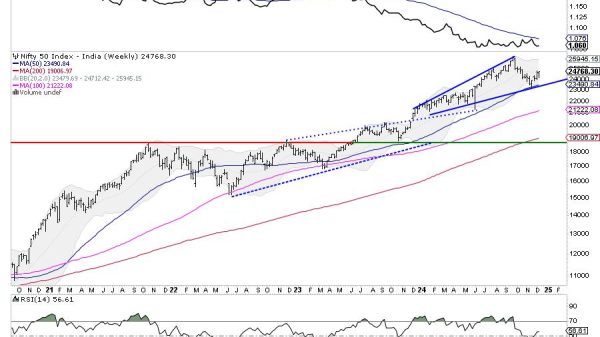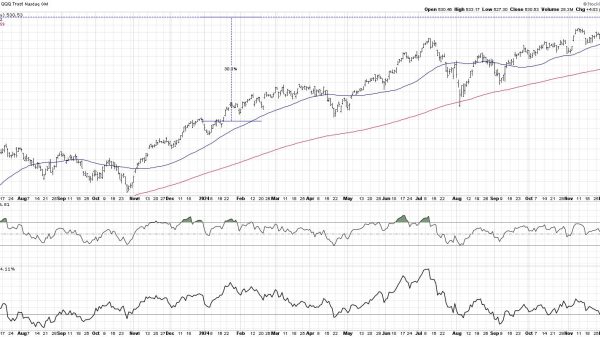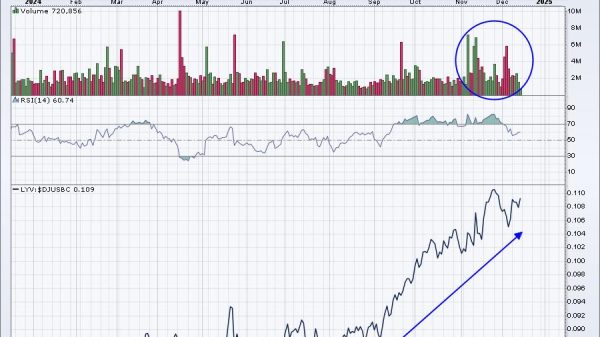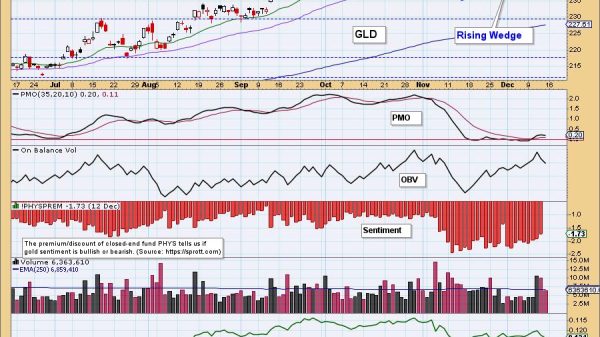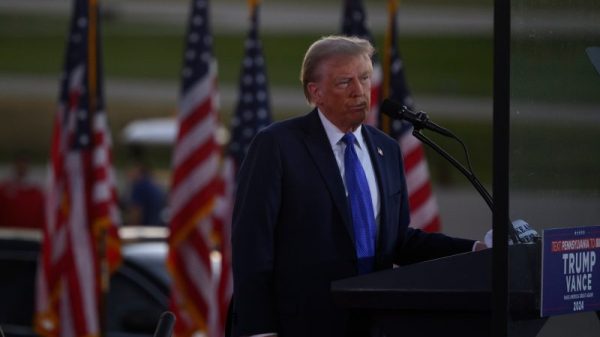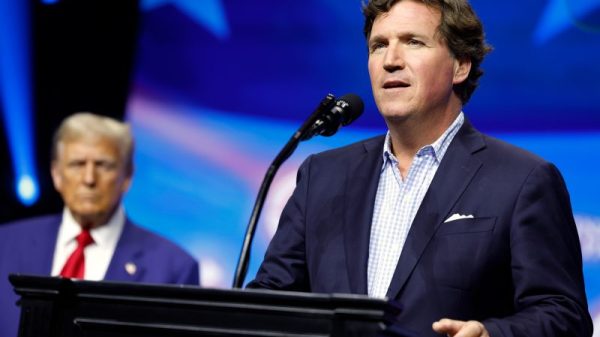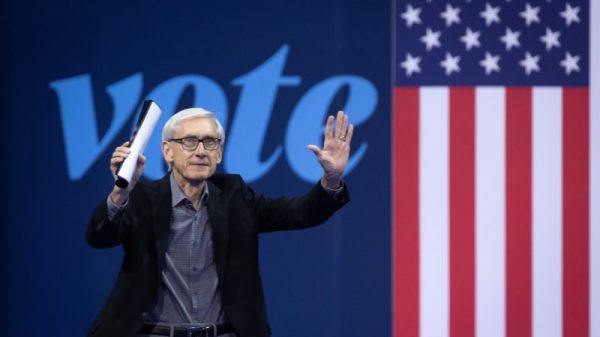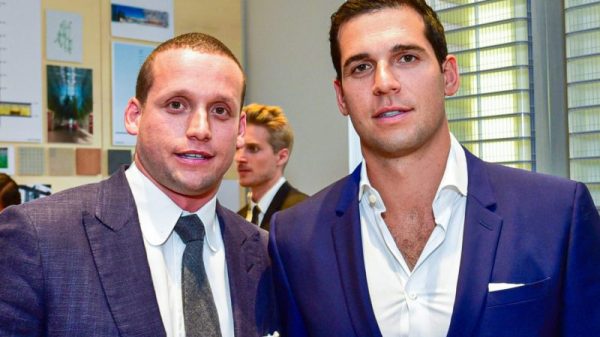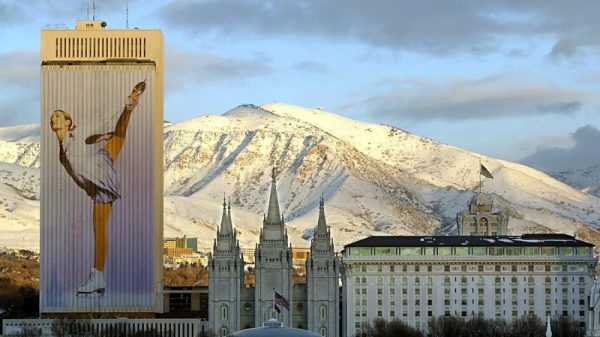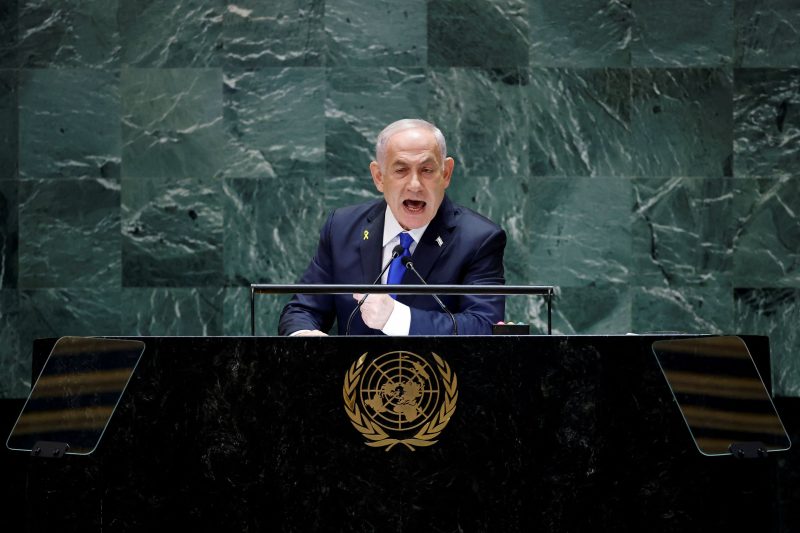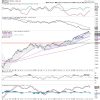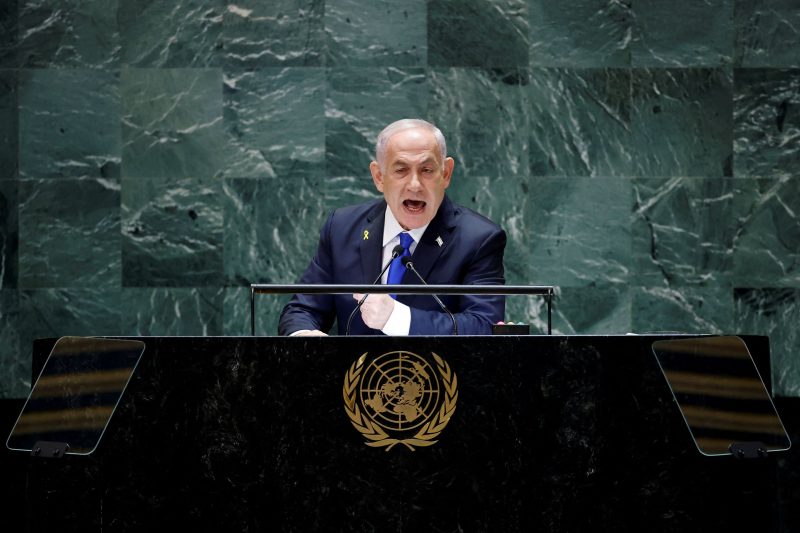
NEW YORK — Israeli Prime Minister Benjamin Netanyahu vowed during a fiery address to the U.N. General Assembly on Friday that his country would continue its military operation in Lebanon in defiance of a U.S. cease-fire proposal demanding a temporary halt in hostilities between Israel and Hezbollah.
His swaggering, bellicose remarks included a warning to all of Israel’s enemies, namely Iran, that there is no place to hide from Israel’s might.
“If you strike us, we will strike you,” Netanyahu said. “There is no place in Iran that the long arm of Israel cannot reach, and that’s true of the entire Middle East.”
Netanyahu’s closely watched remarks came as Israel escalates its campaign in Lebanon, taking out key leaders of the militant group in a bombardment and apparent sabotage operation that has killed more than 600 people, seen Hezbollah return fire with scores of rockets and missiles, and rallied governments across the world to call for a cease-fire.
Netanyahu said Israel is “winning” and pledged to keep fighting. “We’ll continue degrading Hezbollah until all our objectives are met,” he said.
Netanyahu’s address is the latest in a series of remarks that have embarrassed U.S. officials who earlier this week touted a “breakthrough” in negotiating a proposal for a 21-day truce they insisted was done in full coordination with the Israeli government.
White House spokesman John Kirby was asked repeatedly Thursday why Netanyahu kept contradicting a proposal that the U.S. claimed had his support, but was unable to offer an answer other than to say that the prime minister’s remarks were out-of-step with what his aides told U.S. officials privately.
“What prompted the prime minister’s comments, only he can say,” Kirby said. “We wouldn’t have issued the statement we did if it wasn’t supportive of conversations we had with top Israeli officials yesterday.”
Inside the U.N. assembly hall here in Manhattan, scores of diplomats walked out on Netanyahu’s speech, an indication of the Israeli leader’s worsening unpopularity as he rebuffs international efforts to halt the fighting in Lebanon and secure a separate cease-fire with Hamas militants in Gaza. He made clear that the feeling was mutual, calling the world body an “antisemitic swamp” that needed to be “drained.”
Outside the U.N., thousands of demonstrators rallied in Manhattan to protest Israel’s escalation in Lebanon and ongoing bombardment of Gaza, where more than 40,000 Palestinians have been killed, according to local health authorities. Israel’s offensive there followed the Hamas-led Oct. 7 cross-border attack into Israel that killed more than 1,200 people and took more than 250 hostage.
“Our enemies seek not only to destroy us, they seek to destroy our common civilization and return all of us to a dark age of tyranny and terror,” Netanyahu said.
Richard Gowan, a U.N. expert at the International Crisis Group, said Netanyahu’s remarks were directed to the Israeli public, including his far-right cabinet, which has threatened to implode his government if he agrees to silence Israel’s guns.
“Netanyahu, like Trump, has always understood that these U.N. speeches are opportunities to generate catchphrases and memes. He is not that bothered by what the diplomatic audience thinks. He is doing this for domestic media and his U.S. audience,” said Gowan, referencing former president Donald Trump, the Republican nominee in November’s election.
The Israeli leader’s dismissal of a temporary cease-fire in Gaza is another setback for the United States, which has been pushing for months for a deal there alongside Egyptian and Qatari mediators.
“We will fight until we achieve victory, total victory. There is no substitute for it,” Netanyahu said.
Netanyahu’s speech was laden with religious language and the specter of an Iranian “curse” in the Middle East. He sought to underscore that point by holding up a map marked in black over the territory of Iran, Iraq, Syria, Lebanon and Yemen, the countries that encompass Tehran’s so-called “Axis of Resistance.”
In solidarity with Hamas, Hezbollah began firing rockets into Israel on Oct. 8, leading to an increasingly deadly military escalation between the two warring sides over the last year.
President Joe Biden had tapped his top aides to broker a temporary cease-fire during the annual gathering of diplomats at the U.N. General Assembly, prompting a flurry of meetings by Secretary of State Antony Blinken and national security adviser Jake Sullivan with Israeli, European and Middle East diplomats.
Croatian Prime Minister Andrej Plenkovic told The Washington Post that “partnership” between the United States and Europe on preventing a “wide escalation” in Lebanon is critical. But the proposal, endorsed by a wide range of allies including the European Union, France, Australia, Canada, Qatar, Saudi Arabia and Japan, appeared destined to languish without more pressure on both sides to de-escalate.
Karen DeYoung, Adam Taylor and Sammy Westfall in Washington contributed to this report.

